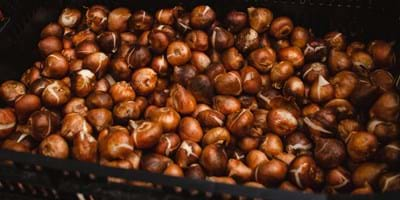He immediately sent for her and assigned her to a room full of straw that he demanded be gold by morning. As the maiden, who had no such skill, despaired of her life, a little man appeared with an offer. He would do the deed in return for her firstborn child. In the moment, with no prospects of a newborn, this seemed a worthwhile exchange. And so Rumpelstiltskin produced a room full of sparkling gold by morning.
In another fairy-tale kingdom, far, far away, there was a king who wished to turn everything he touched into gold. How dreamy this sounded – riches and beauty surrounding him at a touch. The sad reality of the cost dawned upon him as his food turned to gold while he wasted away.
Spinning straw into gold. The Midas touch. Rumpelstiltskin. It all sounds so once-upon-a-time, doesn’t it?
Actually, we all face the conundrum of the temporal. Is there anything of lasting and eternal value in our daily lives? The Preacher of Ecclesiastes laments the insanity and vanity of it all. Why work when another will enjoy the rewards? Why strive when all is left behind for a grave? Why push through when the rat race never ends? Why invest when our temporary state has the final say? Surely there is nothing better for a man than that he should eat and drink and find pleasure in his work. However, everything in this temporary life is, in essence, smoke and spitting into the wind. So says the Preacher.
But, is it?
Ecclesiastes impresses upon us the straw-like character of life: passing, lightweight, blown away in the wind. However, the rest of the Bible seeks to teach us that God hands us material: raw, temporary, of little value in and of itself; and gives us a choice. Will we cling to it as straw to feed our flesh . . . straw, used as straw, vanishing to our appetites, never to be seen again? Or, will we see the potential for eternal value in these seemingly temporary lightweight gifts?
Consider Bezalel and Oholiab, skilled with just the abilities needed to create the tabernacle furniture (see Exodus 31, and 36-39). What if they had hoarded those skills to outfit their own Etsy empire? Or maybe built themselves magnificent tents with intricately carved poles? Or chose to not use them at all? But they recognized and yielded their abilities in the building of the furniture for God’s dwelling-place.
How about the Israelites who willingly offered up the tangible, material things necessary for the tabernacle’s construction? Metals, materials, skins, oils, spices and precious stones (see Exodus 35:1-10).
Over in the New Testament, we see a young boy offering his little lunch, and a poor widow who transformed her two small mites, seemingly worthless, into eternal reward. If they were intimidated by what others were capable of, they overcame that to present all that they had and just what the Lord was looking for, and His appreciation was unmistakable.
We all find varying amounts of time-bound “straw” in our hands: physical possessions, but also skill and time and a heart that could be yielded to God and His plans.
Hannah offered her firstborn son. A child received and given back. A great sacrifice, but eternal gain with no possibility of loss, and plenty of benefit to all of Israel along the way.
Which brings us to the crux of the matter, what is the cost?
There is a definite cost to using our temporal gifts for eternal gain, and our flesh rebels against it. We will be required to willingly sacrifice instant gratification. With the Holy Spirit’s help, we will deny ourselves and hold our stuff loosely, offering it with a servant’s heart whenever and wherever it will be useful for God’s eternal purposes.
But does this really diminish us? Are we poorer for paying this price?
Ecclesiastes teaches us that the grasping hand does not really secure anything anyway. Fleeting satisfaction, a false sense of security, the emptiness of pampering self – exchanging these things for eternal gain is not really loss. And although crucifying the flesh and its desires can be painful in the short term, the gain is not just eternal. We exchange the temporal for the eternal, and find that even in the present, our soul is nourished and our affections are tethered to things unshakable and unfading, sure and secure. As it is more blessed to give than to receive, we find ourselves surprised that the temporary sacrifices of this life actually enlarge us, despite how it might appear on the surface.
So life is a grand opportunity! Take what you have been given and offer it, invest it in eternity, use it to serve. True, you will lose every temporal thing you have ever been given, either suddenly or eventually, but could it meet you again someday transformed into a glittering crown, a Master’s smile, and an invaluable “well done”? Take all the temporal things you’ve been given and leverage them for eternity “where moth and rust don’t corrupt and where thieves don’t break through and steal. For where your treasure is, there will your heart be also” (see Matthew 6: 20-21).
































